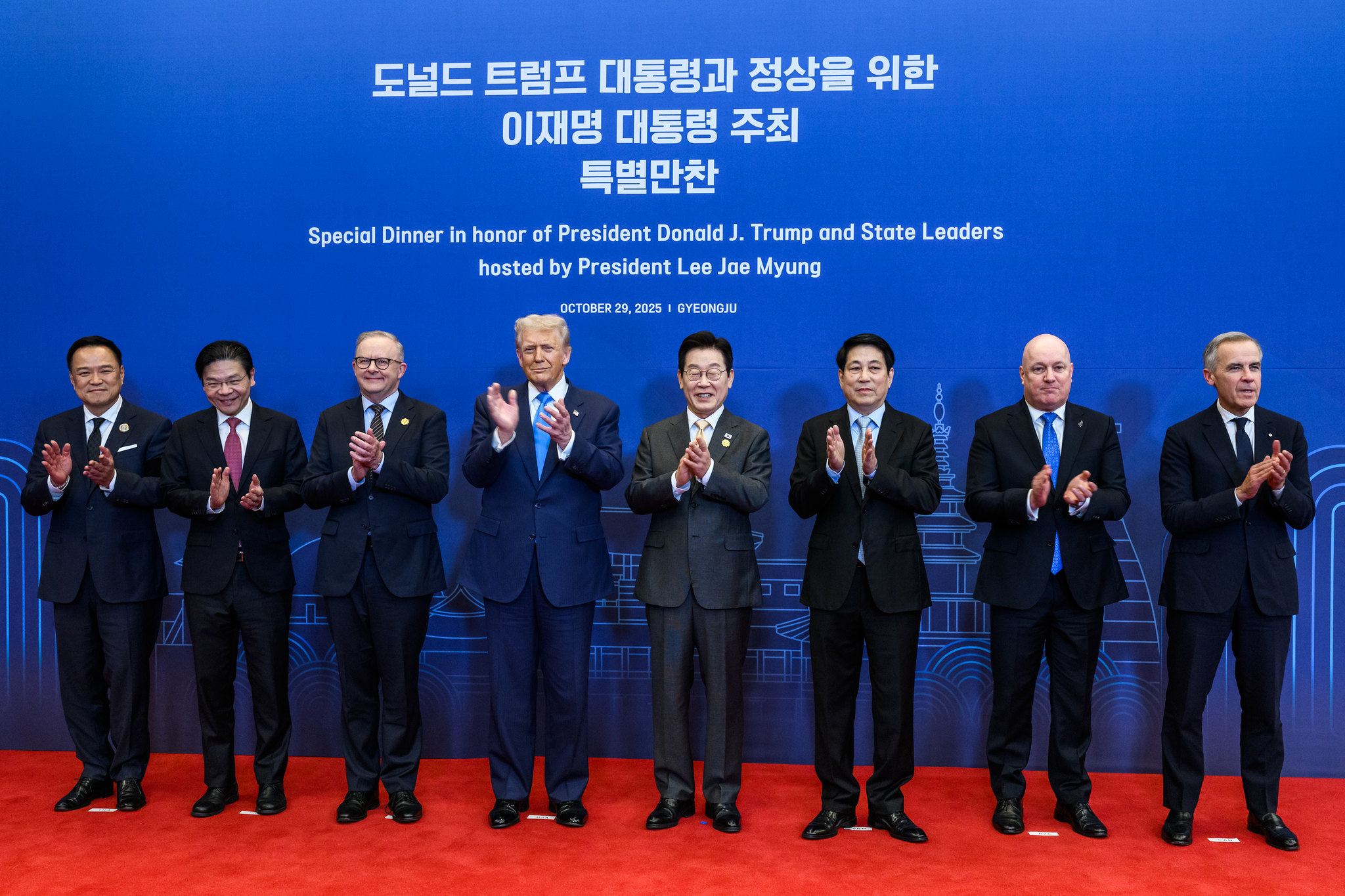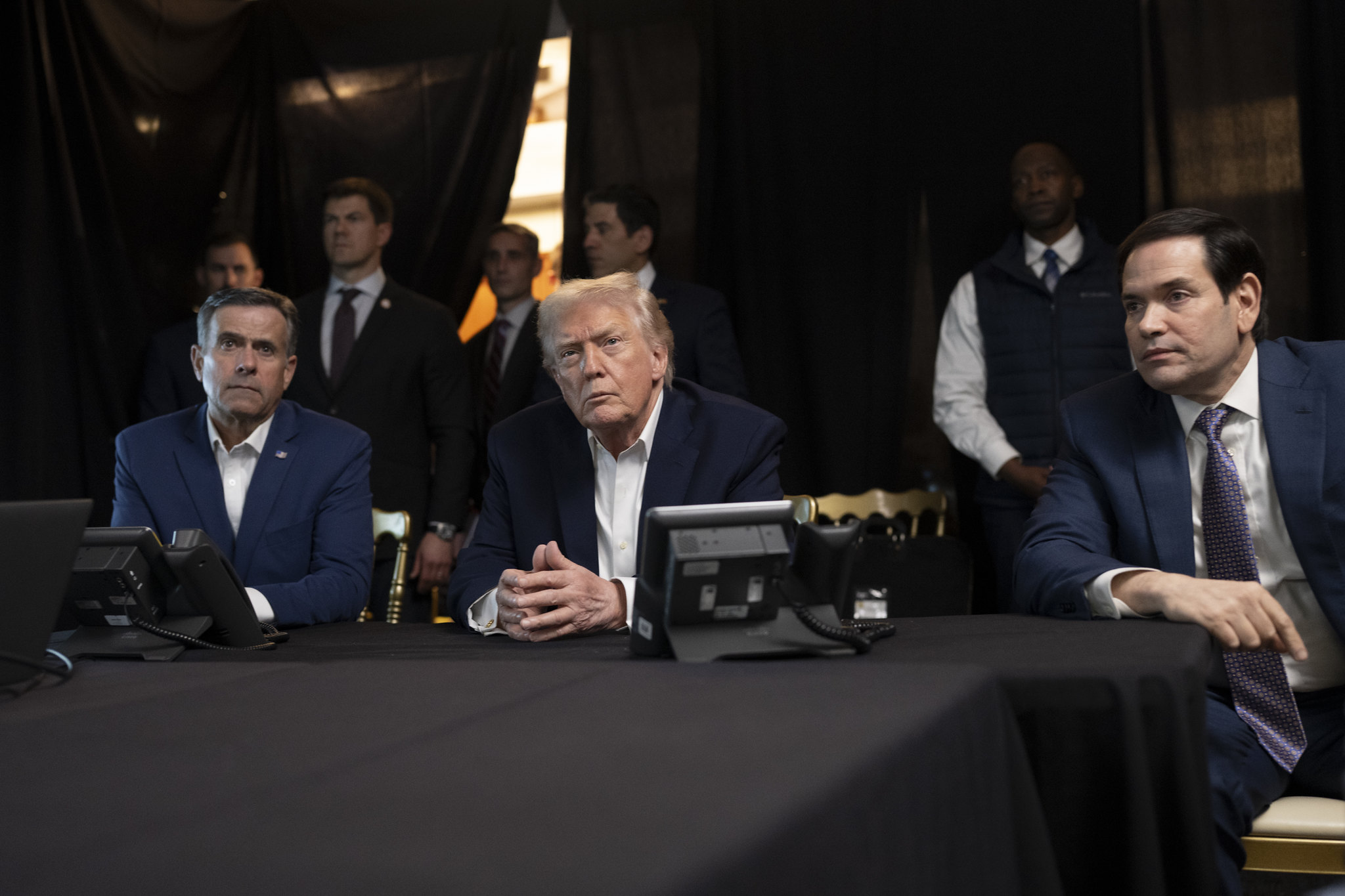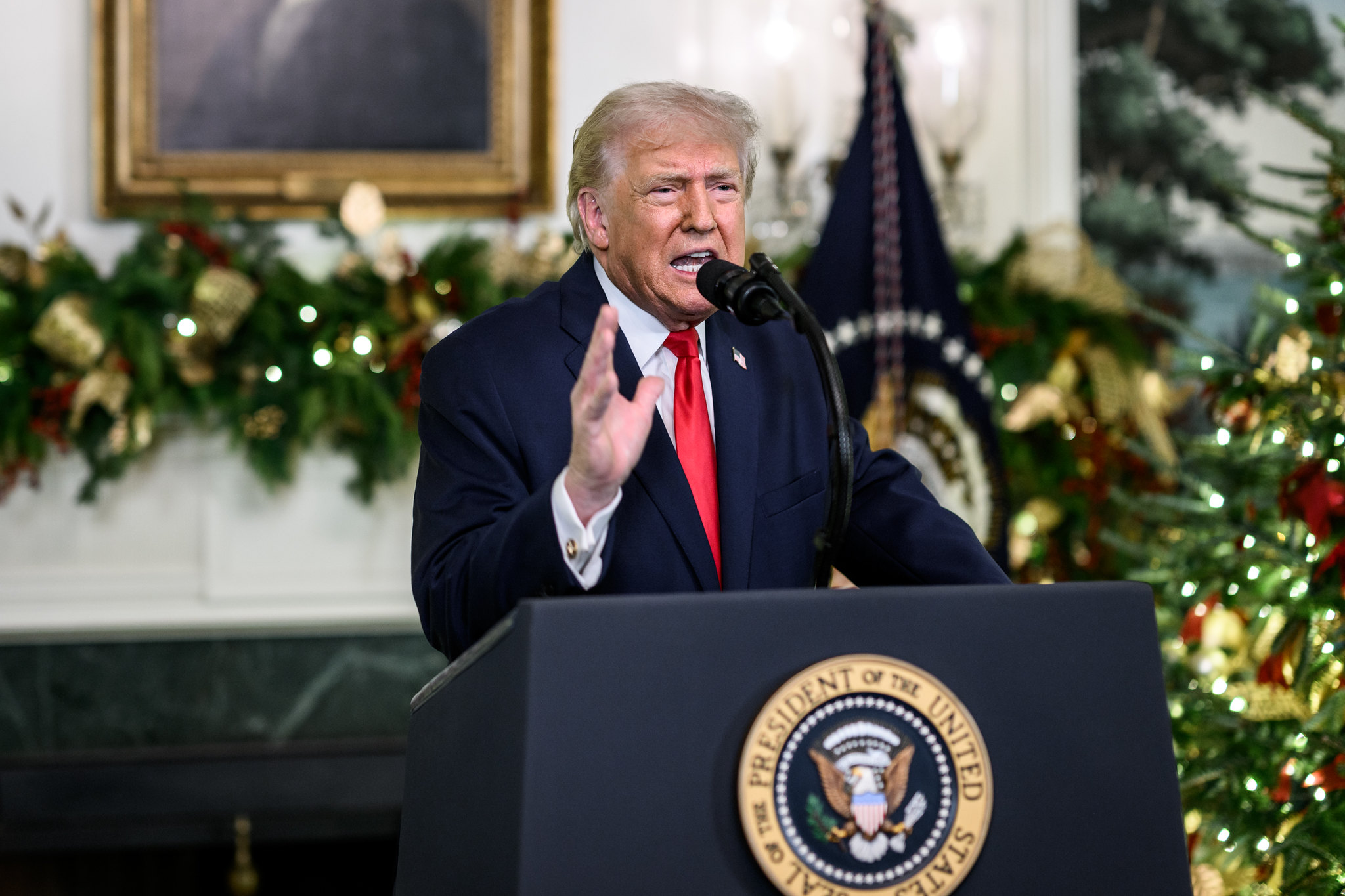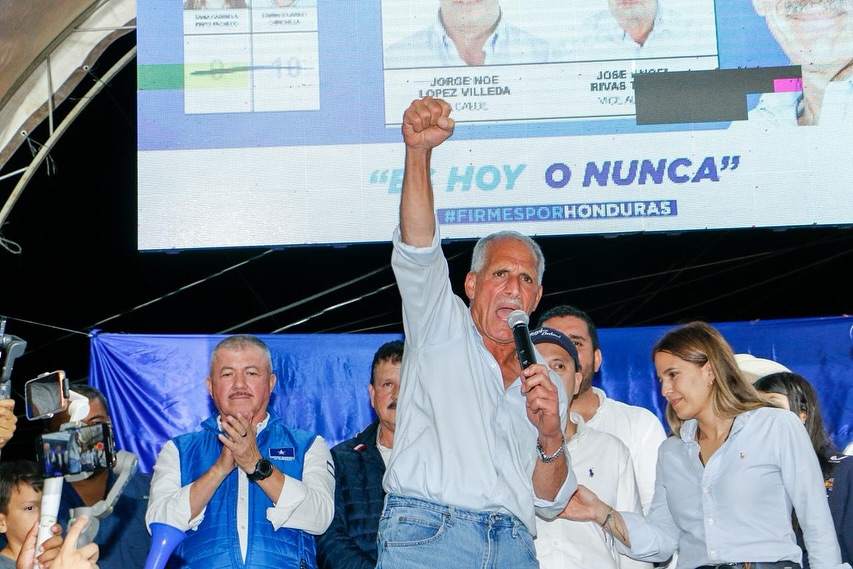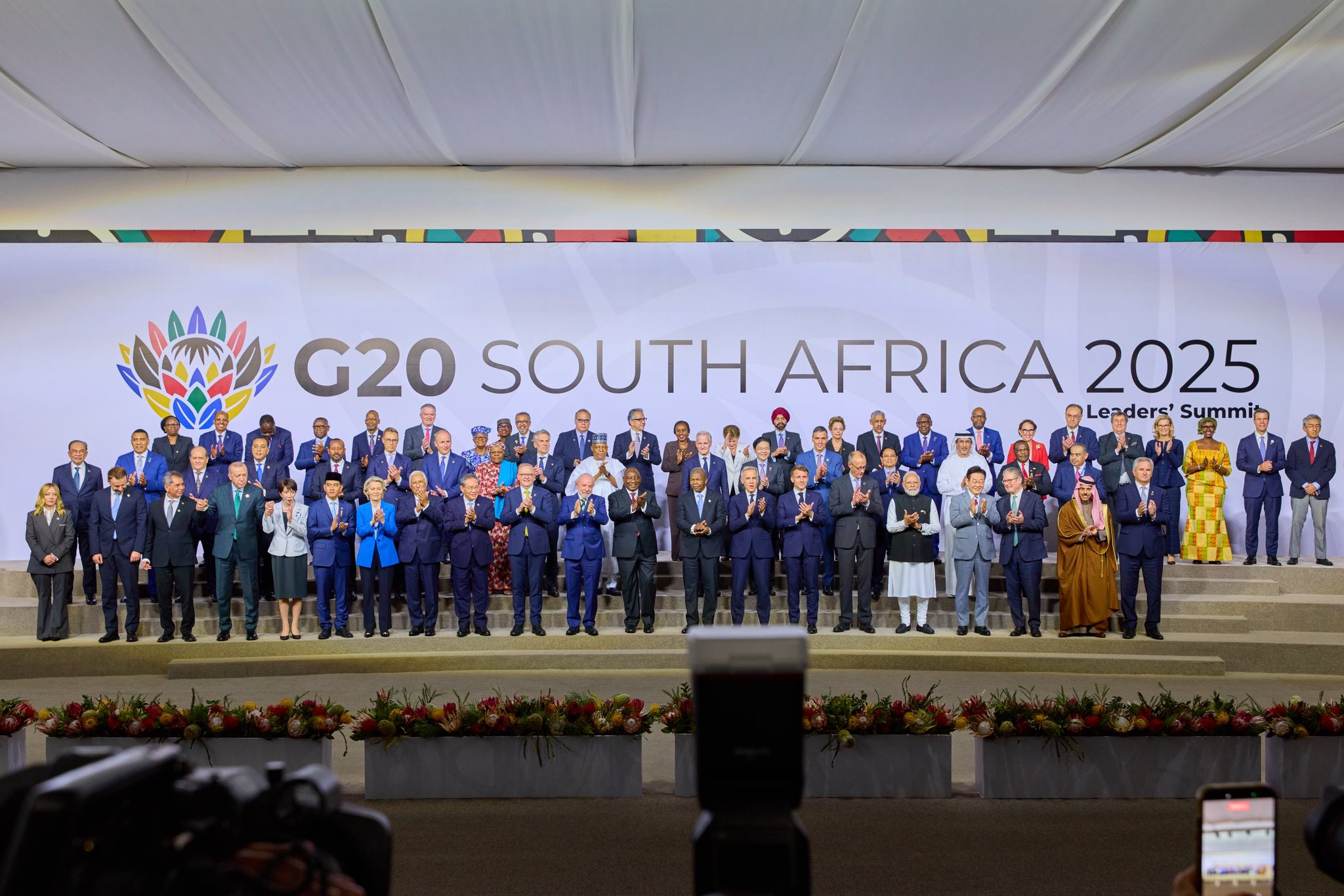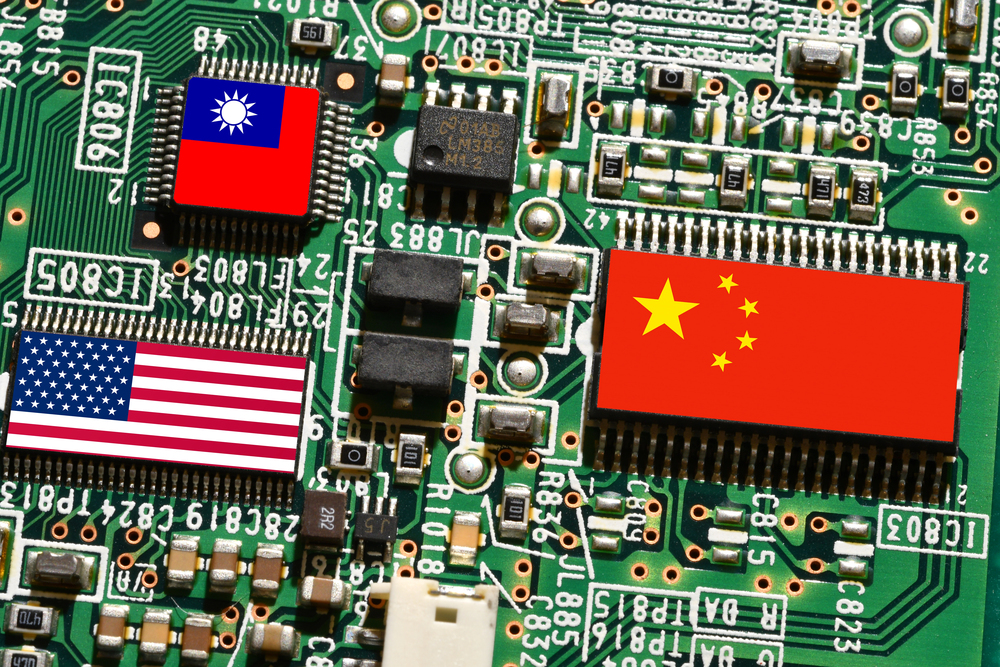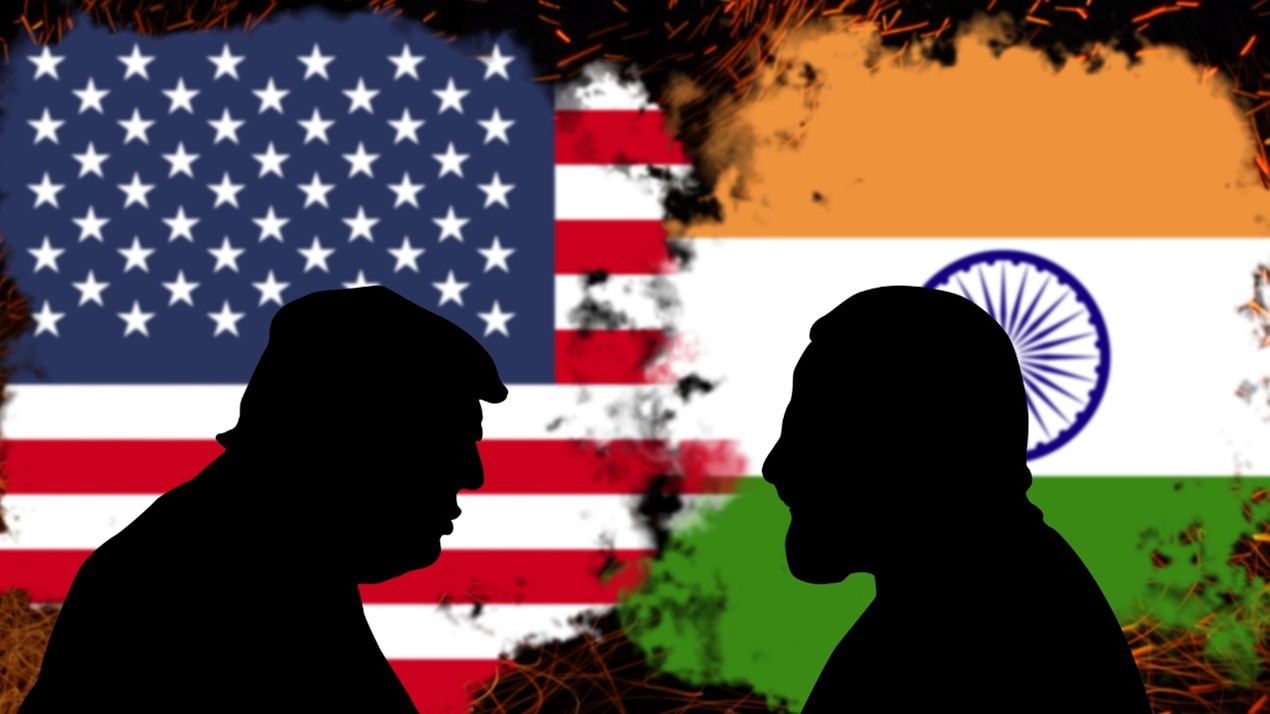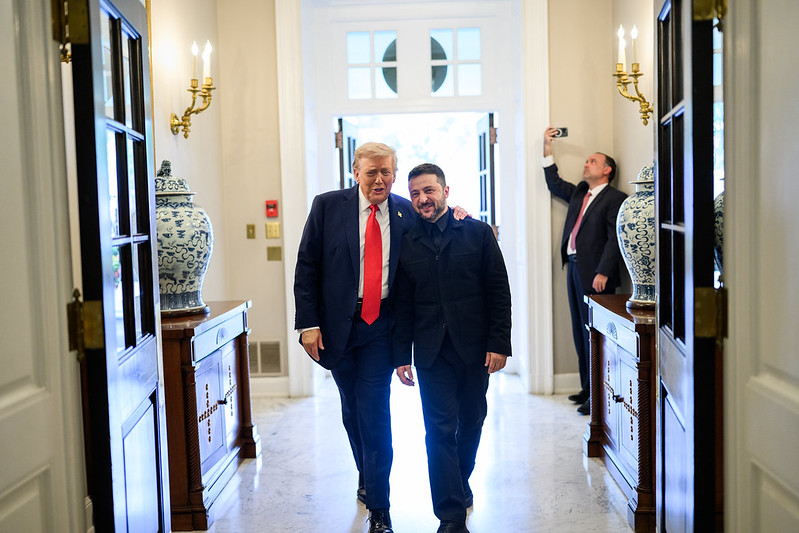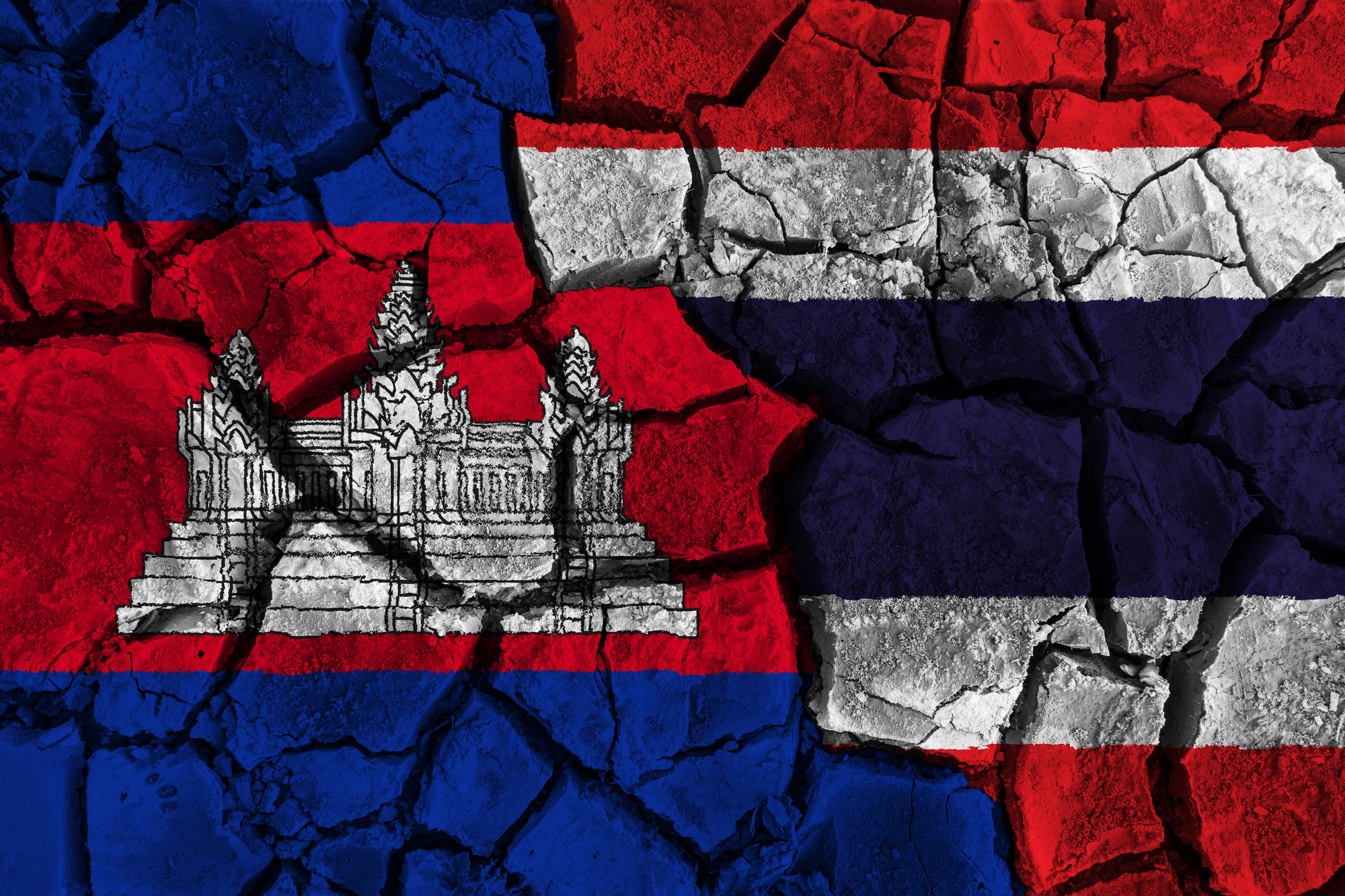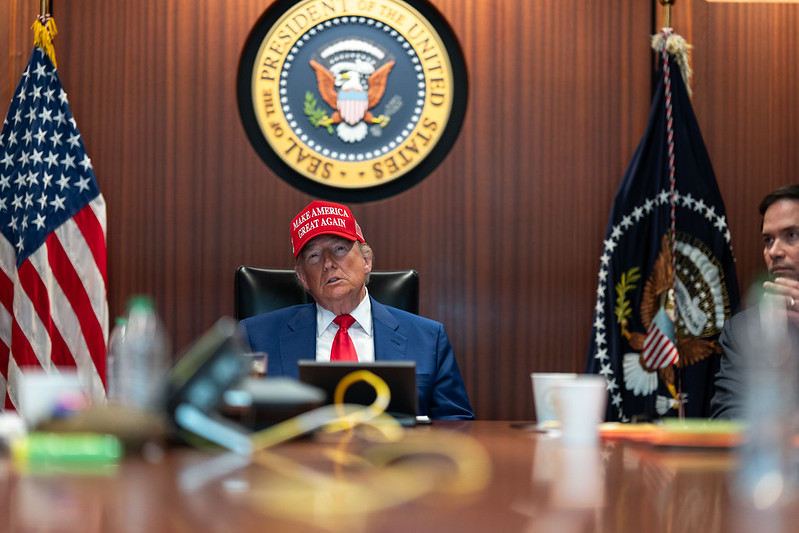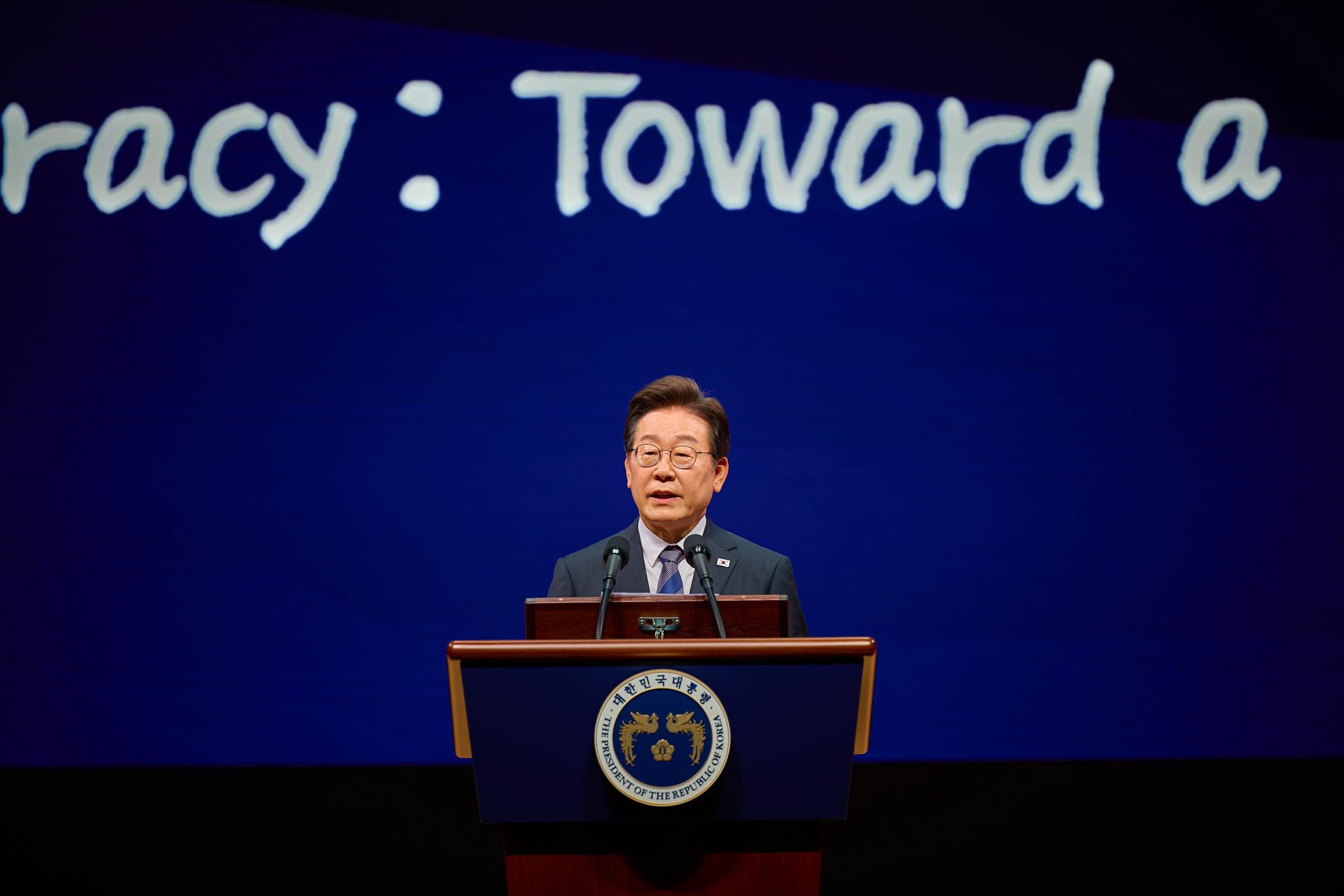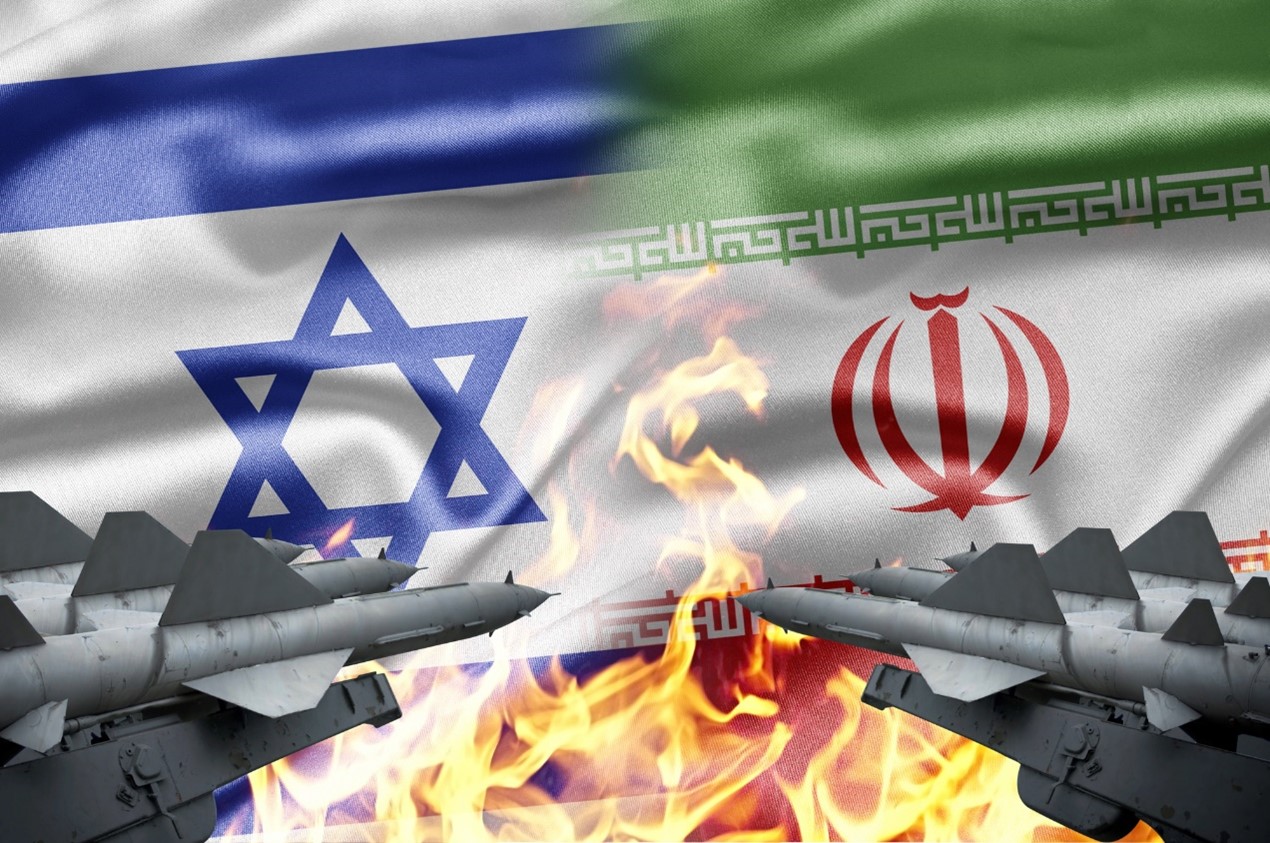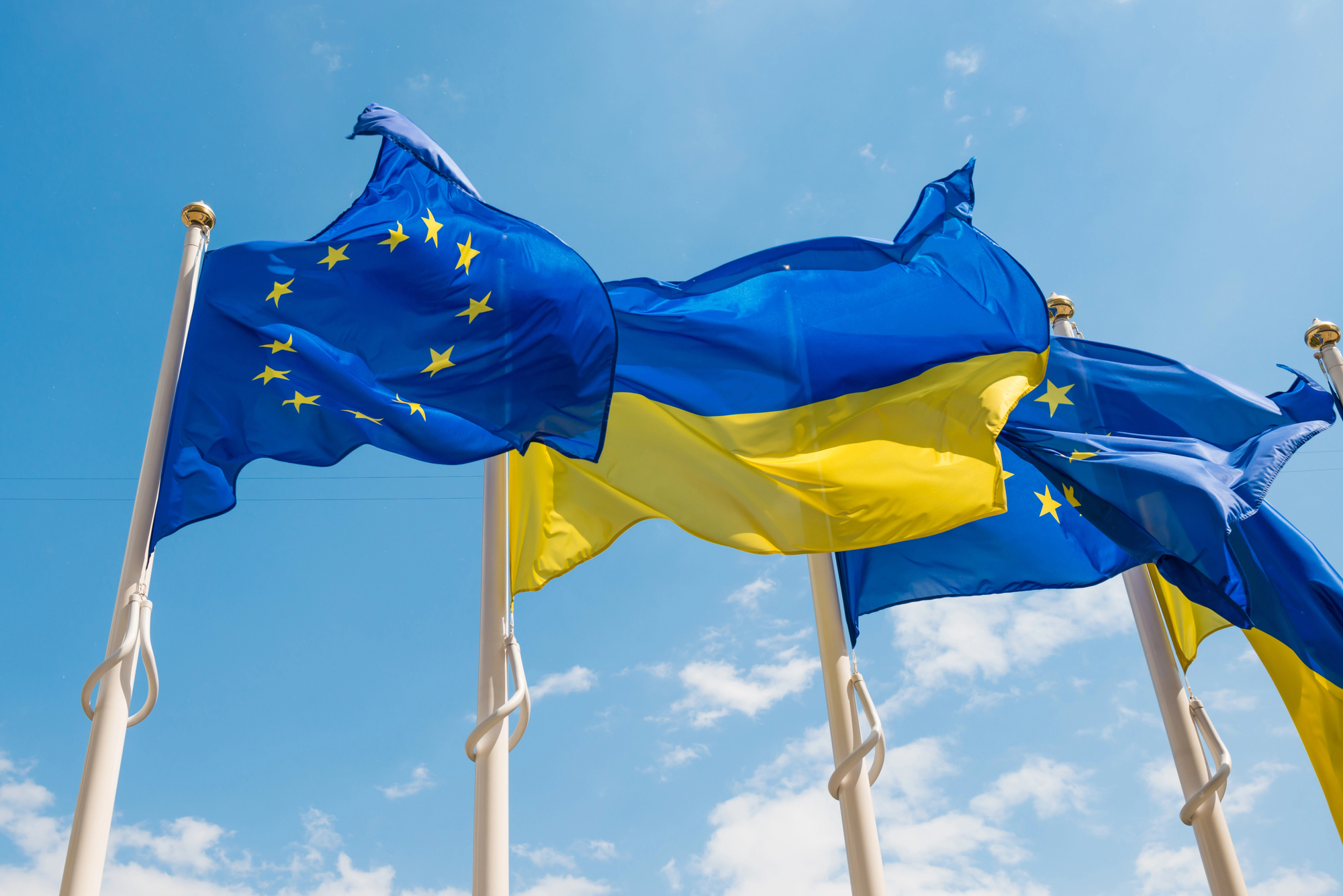Compared to the nuclear submarines, Trump’s subsequent summit with Xi in Gyeongju was an anticlimax. It was more of a pause than a final settlement in their economic contest. Picture source: The White House, October 29, 2025, The White House, https://www.flickr.com/photos/whitehouse/54888708186/in/album-72177720329975390/.
Recent U.S.-China-South Korea Summitry and Implications for Taiwan
By Joel Atkinson
Amid falling leaves in the year 668, King Munmu of the Korean state of Silla led his officials to his ancestral shrine to report, “Respectfully following the intentions of my honored forebears, with the Great Tang [China], we mobilized righteous troops to challenge the crimes of [rival Korean states] Paekche and Koguryŏ. The arch villains, bowing down, pled guilty, making peaceful the destiny of the country.” Not long after, Munmu would be at war with the Tang when it attempted to annex the entire Korean peninsula.
More than 1,300 years later, on another autumn day in Munmu’s capital where the remains of Silla monarchs still rest beneath grassy mounds — now called Gyeongju — South Korean President Lee Jae Myung told U.S. President Donald Trump:
because diesel submarines have limited submerged endurance, there are difficulties in tracking North Korean and Chinese submarines. If [processing of nuclear material to create the] fuel supply is permitted [by the U.S.], we will build submarines equipped only with conventional weapons using our own technology. In that case, we can strengthen defensive operations in the East and West Seas around the Korean Peninsula and reduce the burden on U.S. forces.
Lee’s National Security Adviser later clarified that the President was not referring to North Korea and China as countries (much less arch villains), but rather their “nearby waters” where submarines from any country might operate. And that the nuclear submarines would be for detecting other submarines.
Trump’s ‘opening’
To general surprise, Trump later declared on Truth Social, “Our Military Alliance is stronger than ever before and, based on that, I have given them approval to build a Nuclear Powered Submarine,” “right here in the good ol’ U.S.A.” at the Korean shipbuilding company Hanwha-owned shipyard in Philadelphia.
Notably, this was not what Lee had requested — or wanted. And sure enough, Seoul is now trying to use the opening provided by Trump to push for what it does want: domestic production using localized technologies and supply chains.
So far, Beijing’s response has been decidedly relaxed, suggesting it sees no particular implications for the shifting power balance in the region — or around Taiwan. Beijing understands that a Trump social media post does not equal submarines, and considerable hurdles remain. But even if Seoul gets subs, Beijing likely understands that they are part of a longstanding effort from the South Korean left to increase autonomy from Washington. One report quoted diplomatic sources in Beijing saying that President Lee had explained to China’s Xi Jinping that the subs should be understood as the country pursuing an “independent national defense” to secure autonomy. Beijing can also see the wider context: the energy the new Administration is putting into improving cooperation with China and North Korea, and Lee saying things like this on November 14, “In international society, there are no eternal enemies and no eternal friends. National interest alone is eternal.”
An autonomous South Korea?
If, as Beijing expects, in 10 to 20 years China is the most powerful country not only in the region but the entire world, U.S. forces will no longer be on its Korean Peninsula doorstep. This means a South Korea that is increasingly autonomous from Washington, and a few South Korean nuclear subs will be irrelevant given the greater influence over “autonomous” Korean decision-making Beijing will have with the U.S. out of the picture.
The vision held by at least some Koreans on President Lee’s side of politics is not so different. In a recent commentary on the summits, Jung E-gil with the left-wing Hankyoreh newspaper declared “the US is waning, China is thriving and South Korea is on the rise”:
the US has no choice but to allow South Korea to pursue nuclear-powered submarines, and China is now reconsidering the role of South Korea in East Asia as the US starts to back away from the region. South Korea can no longer be satisfied with simply being a subordinate of the US. The greater our responsibilities grow, the more imperative it is that South Korea refrain from meddling in conflicts in East Asia and instead focus on ensuring that the various powers remain in balance. This is at once a crisis and an opportunity for South Korea.
Of course, the “conflicts in East Asia” he expects South Korea to “refrain from meddling” in means Taiwan.
Compared to the nuclear submarines, Trump’s subsequent summit with Xi in Gyeongju was an anticlimax. It was more of a pause than a final settlement in their economic contest. As such, observers were free to interpret the outcome as a signal of which way the balance of power is trending — with its obvious implications for Taiwan’s security — according to their preconceptions. For what it’s worth, this observer believes China has to some extent mortgaged the future to pay for a show of strength in the present and that the revelation of weaknesses on the U.S. side will ultimately push it to compete more effectively. Whether that will be on a timeline that reestablishes deterrence before it’s too late remains to be seen.
Implications for Taiwan
Taiwan was not officially on the menu. Trump had indicated that Taiwan might be brought up, sparking speculation that he would use it as a bargaining chip — obviously a horrifying prospect for most of its 23.5 million people. The fact that it was not suggests to me that Trump’s people made it clear to the Chinese that it should be off Trump’s agenda. Regardless, for all the chatter around Trump’s isolationism, Washington has not (yet) distanced itself from Taiwan. And there remains a consensus in Washington behind increasing cooperation with Taiwan in order to reestablish deterrence vis-à-vis China.
The final summit worth noting was between Xi and Lee on the sidelines of APEC after Trump had left. Both achieved their shared goal of creating a friendly atmosphere and a perception that more cooperation is on the way.
The mere fact of Xi coming went a long way in that respect. Xi last visited South Korea in 2014 but then refused to return after President Park Geun-hye allowed U.S. Forces Korea to install a THAAD missile defense unit in 2016. Now Xi was gifting Lee a Xiaomi phone and joining in jokes about security backdoors.
Seoul touted Xi’s visit as restoration of relations to a pre-THAAD level, displaying that desire to increase cooperation that Beijing sees fit to reward with greater friendliness. Given all the signaling, we can surmise that many in Taiwan quite reasonably expect the Lee Administration will cooperate substantively with China at Taiwan’s expense. But the reality is, despite the consistent strong desire to increase cooperation with Beijing on both sides of politics here in Seoul, the secular trend is for relations to continue to worsen even with these periodic cycles of warming. There are many reasons for this, but the most important is that China is a difficult country to cooperate with, and has ambitious goals that contradict those of the South Korean public.
So what can we take away from the three summits? The shared theme was “cooperation.” But there is more cooperation being touted than chairs for it to sit on, so to speak. And when the music stops, we will see how much cooperation actually happens and with whom. South Korea has not yet made “peaceful the destiny of the country” as King Munmu put it. And there are competing and highly polarized visions on how best to achieve it, with important implications for Taiwan’s own peace.
(Joel Atkinson is Professor, Graduate School of International and Area Studies, Hankuk University of Foreign Studies.)


